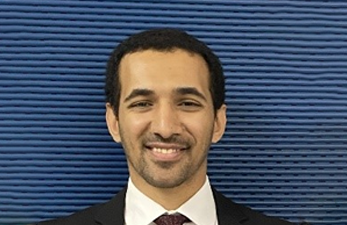Time & Location:
Auditorium (G01011, KU Main Campus )
Monday 29th April 2024 (10:00 am – 10:30 am)
Abstract
Line Current Differential Relays (LCDRs) are protective relays increasingly used to protect critical transmission lines and important lines in microgrids with high penetration of distributed generation. Currently, the architecture of LCDRs is designed to respond to internal faults on the protected line using local and remotely-communicated current measurements. However, this architecture cannot distinguish between real faults and cyber-induced attacks whose goal is to cause false tripping of the line protected by the LCDR. In this seminar, we will discuss how to design machine-learning-based schemes to secure LCDRs against different cyberattacks using only the LCDRs’ measurements. Additionally, we will share the results presented in multiple IEEE transactions papers authored by the presenter. These papers propose learningbased mechanisms to detect various cyberattacks that can target LCDRs. Finally, we will show how this approach can be extended to secure other power system components against certain cyberattacks.
Biography

Ahmad Mohammad Saber (Member, IEEE) received the B.Sc. degree in electrical engineering from Ain Shams University, Cairo, Egypt, in 2016, the M.Sc. degree in electrical engineering from Cairo University, Giza, Egypt, in 2019, and the Ph.D. degree in electrical engineering and computer science from Khalifa University, Abu Dhabi, UAE, in 2024. Since 2016, he has held technical and commercial roles in several industries including power transformers manufacturing, water and wastewater treatment, and access control and security systems. In 2023, he was an International Visiting Graduate Student with the University of Toronto, Toronto, ON, Canada. His current research interests include cyber-physical security, machine learning applications, power systems protection, distributed generation, renewable power planning, and integration. Mr. Saber was a Reviewer for multiple IEEE transactions journals. He was the recipient of Khalifa University’s Graduate Research/Teaching Scholarship and the Outstanding Graduate Student Awards in 2022 and 2023.